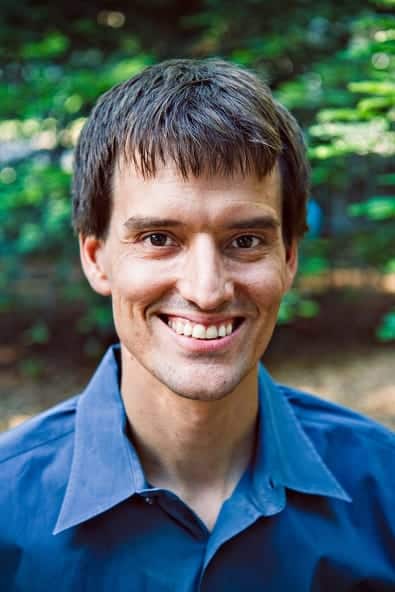This week we’re interviewing Rob Walling.
Rob owns long tail SEO keyword tool HitTail and soon-to-launch email marketing application Drip, along with co-hosting the popular startup podcast, Startups for the Rest of Us.
Rob is also the co-founder of the incredible MicroConf Conference, and I personally rate this as one of the best software conferences of all of them.
Dave: What makes you tick? [Interpret this as you wish]
Rob: I thrive on setting and achieving goals. With my family, I decided I wanted to teach my son how to program and now I love teaching him to code. At work, I set goals at the start of each year and as I check big picture items off during the year I get a rush. Competition (even friendly) is another thing that drives me. But first and foremost I’d say it’s about goals.
Dave: What do you think is the single most useful skill for the solo entrepreneur?
Rob: As cliche as it sounds, it’s Perseverance. You have to be able and willing to fail over and over again. The only people I’ve known who have had success have gotten up, dusted themselves off, and eventually found victory. But the journey is littered with mistakes, failures and times when you want to quit.
Dave: Some businesses believe that they have good ideas and everything is lined up, but they have a problem reaching actual customers. Assuming that the market exists, how do you do this?
Rob: That’s a big question. If it’s online, I like to think about it in terms of concentric circles.
The innermost circle are people you know or who know you. So your friends, colleagues, Twitter followers, blog readers, podcast listeners, email subscribers, etc… Basically, anyone you can reach without spending much time or money. You “have their ear” to so speak. Those are the first people you should spread the word to in a non-sales-y way, that you have just launched something.
The circle around that are people who know people you know. So contacting the bloggers you know who have an audience that could use your product, and guest posting. Emailing the podcast hosts you know and pitching a good story that somehow involves your product. Now you’re moving beyond your immediate sphere of influence and into the sphere of your friends/colleagues.
Finally, you move to the outermost circle which includes finding new people. That’s where SEO, content marketing, integration marketing (meaning integrating with more popular apps so they will promote you to their audience), and paid acquisition come into play. Each of those deserve a book…but any one of them can become a flywheel marketing approach that can singlehandedly grow a business.
Dave: Why the obsession with going solo? Doesn’t this limit you in some way?
Rob: It does limit the potential of my business. I’m just now hitting the ceiling of what 1-person can do, even using contractors extensively. The nice part is that the limit is pretty high up, meaning you can grow the revenue of a software company pretty high and remain solo.
For me, the solo decision was about family and lifestyle. I have young kids, and I spend a lot of time with them (I work around 30 hours/week). I’ve never wanted employees around who would make things complicated. I’ve chosen a less stressful work environment for slower growth…that’s the big trade-off.
For the record, I did hire my first employee a few months ago. The funny part is he had been working full-time as a contractor for a while but needed to buy a house so I made him W2. It’s just a tax designation more than anything, you know? He still has all the autonomy and skills he did when he was contracting for me.
Dave: If you could start over again, from scratch, what would you do differently?
Rob: I would ignore the big VC ideas, not try to seek funding, go after subscription revenue from B2B customers…and I would outsource more at the start. That sentence pretty much summarizes every mistake I made (some of them multiple times) from 2000-2005, before I had my first taste of moderate success.
Dave: How do you divide your work time?
Rob: I typically focus on a project for 6-18 months, meaning 80% of my time is devoted to it. Then I find people to run it, and automate it as much as possible, and move on to the next.
So I just finished a stint working on a web app called HitTail (a long tail SEO keyword tool) for about 18 months. I grew it to a natural peak and then shifted to a new web app called Drip (email marketing). That will be my focus for the next 18-24 months.
And, of course, a lot of my work time is never worked by me. I have multiple virtual assistants who handle all kinds of tasks I used to handle myself. That’s been a huge win for me, and one of the reasons I’m able to choose what I want to work on, for the most part.
Dave: Many people know you for your role in the Micropreneur Academy, MicroConf and of course your “Start small, stay small” book. When your last day finally comes, how would you want to be remembered by non-family members?
Rob: I want to be remembered as someone who gave back to the startup community; as someone who never hesitated to share the things he learned in order to help others achieve their entrepreneurial goals.
Dave: What do you consider your greatest work-related accomplishment so far?
Rob: By far, the thing I am most proud of are the dozens of people who are now running software companies instead of working unhappily at a salaried gig. To know that people would not have made it at all, or would have had a much harder time without the things I teach…that’s huge.
I’ve been told by many people that my book changed the way they thought about work, software startups, and their life. Yep…that’s definitely my greatest work-related accomplishment.
Dave: Thank-you very much for sharing Rob.
Unique ideas for your business
The Demystifier puts practical ideas into your hands. You won't find them elsewhere. Original, actionable and insanely effective.



